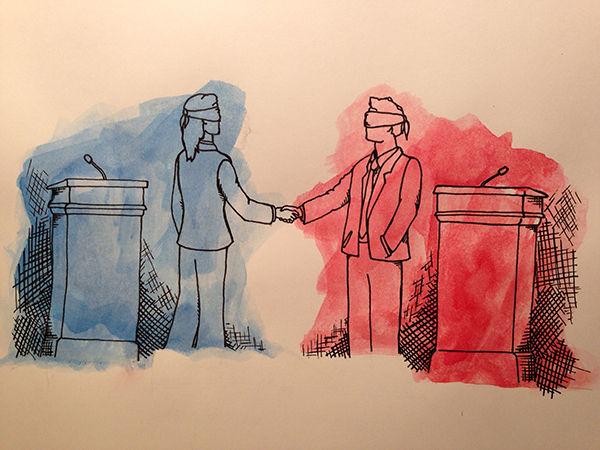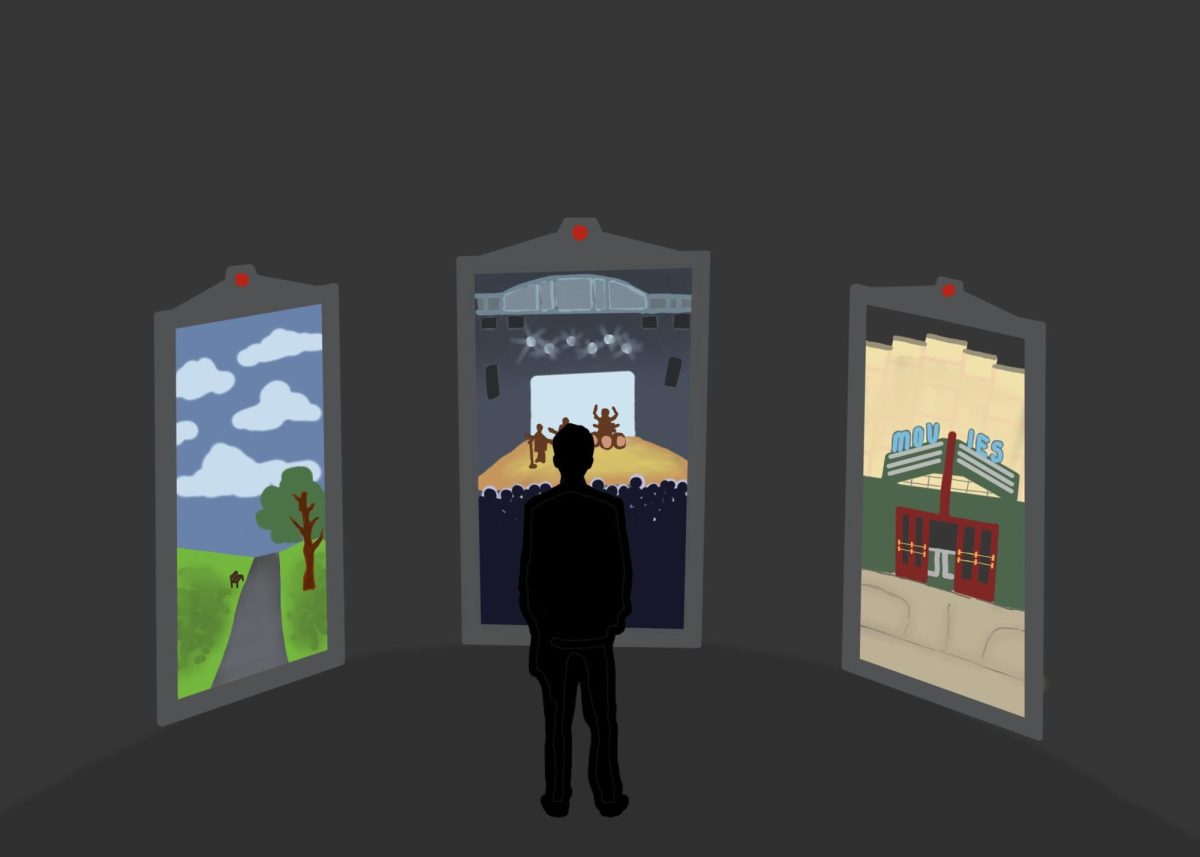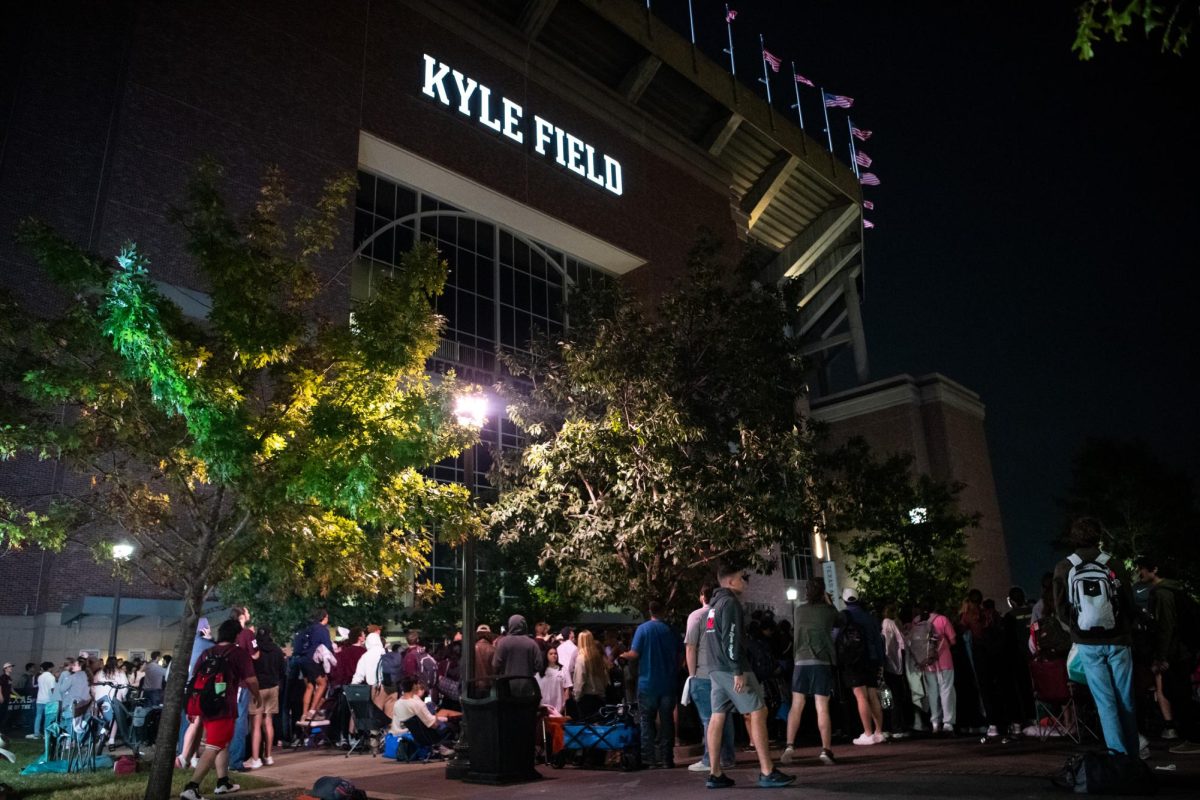Civil discourse is conversation intended to enhance understanding. It’s meant to give a well-rounded look at an issue. And when civil discourse is pushed aside in favor of personal gain or prejudice, the consequences can be severe.
In Washington D.C., several factors have lowered the amount of civil discourse in government. Gridlock in the Congress and animosity between legislators and the president is a more public example of this struggle. Tom DeFrank, contributing editor at the National Journal in Washington D.C., has covered national politics for more than 40 years. He visited A&M Thursday to share his experience and thoughts, and in the case of civil discourse, the view was bleak.
He faulted both parties, saying that Democrats and Republicans alike are only focused on getting re-elected and have given up on working toward building relationships with other legislators outside of the office. “Bipartisanship” has become a dirty word. With the loss of collaboration, conversation has begun to collapse from the inside out in D.C.
Texas is not exempt from this fallout. A few weeks ago, on Texas Muslim Capitol Day in Austin, a group of demonstrators outside the Capitol had their conversation interrupted by a woman who began to preach about God. She didn’t want to hear about Muslims or their religion; in her eyes they were wrong and she was right.
Inside the building, state Rep. Molly White told her staff that anyone entering her office had to pledge their allegiance to America. Seriously, I’m not making this up. Gov. Greg Abbott had to release a statement reminding people that everyone has a voice in civil discourse and must be respected.
So why is there a problem if there’s no civil discourse? Without it, there is no sharing of ideas. If everyone ignored those that disagreed with them, we’d all walk around silent. Disagreeing with someone simply because they stand on the opposite side of an issue is close-minded, and in the end, dangerous. Without discourse, there is no development of ideas.
Aggies should be concerned about the decrease in conversation on issues. With the 84th Texas Legislature in session, A&M must continue to address issues that have polarized groups for years.
We work toward diversity. Diversity means more opinions, mindsets and backgrounds. There will be conflict because we see things differently. However, we have to remember to debate civilly because, in the end, we are all people who deserve respect.
The debate over concealed carry on campus that has rolled over from last semester when Student Senate passed the Personal Carry Act is not going to go away anytime soon. At least seven bills filed for the 84th Legislature deal specifically with gun laws in the state. Soon certain bills will begin to reach the floor for votes. There will be arguments, there will be discussion, but there does not have to be hatred.
Whether you’re pro-gun or anti-gun, remember that in the argument you are fighting an issue, not a person. Someone disagreeing with you in a discussion gives you no right to attack them personally, whether it be verbal or physical. Gov. Abbott recognizes the goodness that can come out of civil discourse, and so should we.
Civil discourse is healthy in a democratic society because everyone has a right to have his or her voice heard. That has to mean everyone — not just the person with the loudest voice. Do not let your own biases deafen you to the words of others, no matter their background or their own personal life. Instead, put on the metaphorical blindfold and focus on the issue at hand.
Speak your mind – civilly, of course
February 20, 2015

Graphic by Reagan Brunsvold
0
Donate to The Battalion
$2790
$5000
Contributed
Our Goal
Your donation will support the student journalists of Texas A&M University - College Station. Your contribution will allow us to purchase equipment and cover our annual website hosting costs, in addition to paying freelance staffers for their work, travel costs for coverage and more!









